Calilo – sustainable luxury on a Greek island: MoneyWeek Travel
Rupert Hargreaves visits Calilo, a resort on the Greek island of Ios, where sustainability and luxury live in harmony

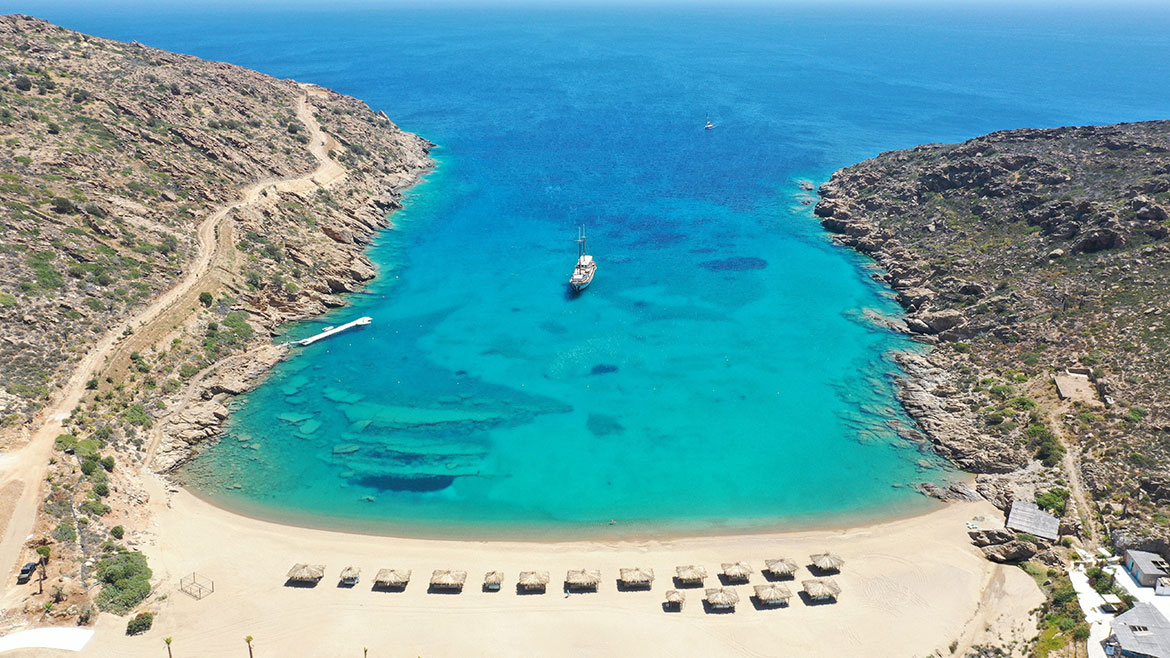
Get the latest financial news, insights and expert analysis from our award-winning MoneyWeek team, to help you understand what really matters when it comes to your finances.
You are now subscribed
Your newsletter sign-up was successful
Want to add more newsletters?

Twice daily
MoneyWeek
Get the latest financial news, insights and expert analysis from our award-winning MoneyWeek team, to help you understand what really matters when it comes to your finances.

Four times a week
Look After My Bills
Sign up to our free money-saving newsletter, filled with the latest news and expert advice to help you find the best tips and deals for managing your bills. Start saving today!
Sustainable travel is all the rage. For most people, the idea of sustainable travel conjures up images of yoga retreats and camping in forests, drinking nothing but water and eating a “clean” diet. And this is the problem with the notion of travelling sustainably. We all need to be more careful about how we use the world’s valuable resources, but for many, sacrificing the creature comforts we’ve become used to is a step too far.
It’s this idea that underpins the work of Angelos Michalopoulos and his family on the unspoilt Greek island of Ios (also known as Io or Nio).
One of the Cyclades group of islands in the Aegean Sea, about an hour away by ferry from Santorini, Ios has managed to escape the overdevelopment that’s swamped other Greek islands such as Santorini, Mykonos and Corfu.
MoneyWeek
Subscribe to MoneyWeek today and get your first six magazine issues absolutely FREE

Sign up to Money Morning
Don't miss the latest investment and personal finances news, market analysis, plus money-saving tips with our free twice-daily newsletter
Don't miss the latest investment and personal finances news, market analysis, plus money-saving tips with our free twice-daily newsletter
Towards the end of the tourist season in September, I visited the family’s main project on the island, called Calilo, which is a hotel located about a 40-minute drive from the main port. Even at this time of year, the hotel was hosting its first wedding, and there was a notable buzz as guests gradually arrived.
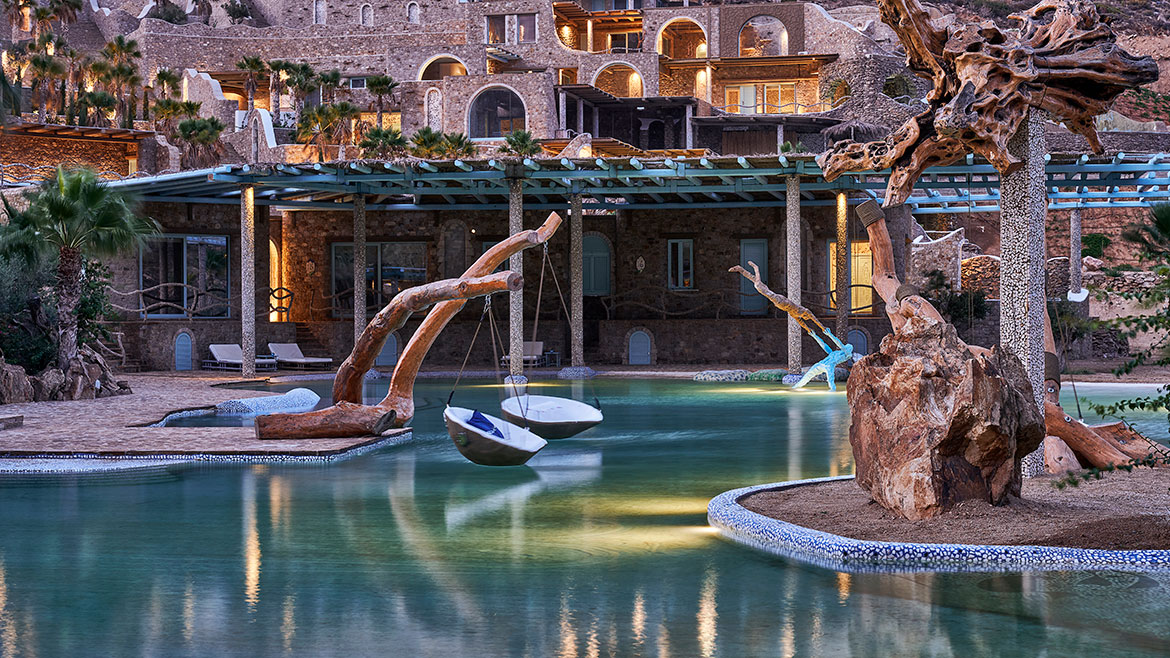
Calilo has a stylish aesthetic.
Michalopoulos made his money on Wall Street. While he keeps his business relatively secret, he tells me his firm trades stocks, bonds and commodities, using algorithms. “I make money because people don’t understand themselves,” he says. “People place too much emphasis on rewards and not enough on the risks both in business and life.” The Calilo Group is planning to invest a total of €200m on the island.
The projects are designed around the principle of protecting the environment and nurturing the local community. But they’re also financially sustainable, and that, as Michalopoulos tells me, is just as important.
Turbulent times in the Greek islands
I met Michalopoulos at his home on Ios at a particularly poignant time for Greece and its economy. In the weeks before I arrived, the country had been devastated first by wildfires and then by floods, distorting lives and livelihoods.
Greece was only just starting to recover from its 2010 debt crisis when the coronavirus pandemic hit. Its tourism industry, which accounts for around a quarter of GDP, was devastated by two years of the most severe lockdowns in the Western world, handicapping an already fragile economy.
Luckily, consumers emerged from the pandemic with money to spend and many rushed to Greece. However, a changing climate is now threatening to throw the country into more turmoil if extreme weather pushes tourists away.
There’s a school of thought that the only way to stop the climate from changing further is to stop driving, flying, eating meat, buying smartphones and having children. That’s not a future many people would choose if asked and it shows. Despite all the climate warnings, we’re still driving, flying and consuming more than ever.
So, the Calilo Group led by Michalopoulos has taken a different approach. They have acquired around a third of the land on Ios and have made a legal commitment to restrict development to less than 1% of the land. This is a long-term commitment and it’s designed to be sustainable – both in the environmental and business sense, the group says.
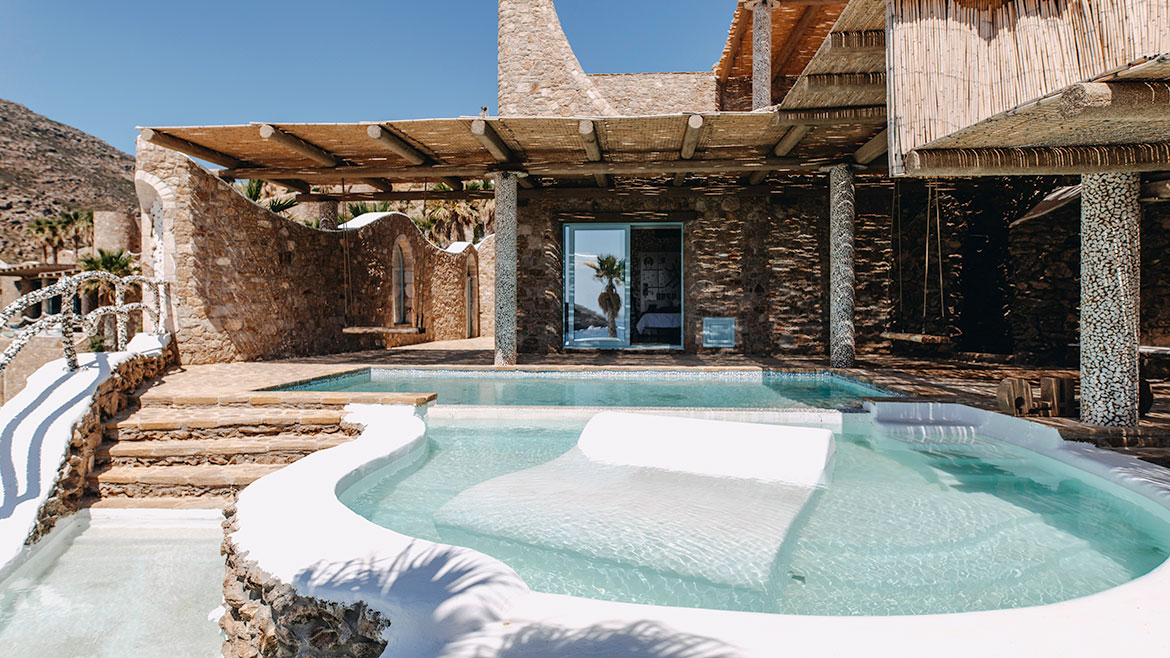
The Serenity Suite at Calilo
Calilo is a family enterprise with two generations running the business. As Michalopoulos explains to me, the goal was always to get the next generation interested at an early stage and thinking about the future.
This brings me to the business side of the operation. “There are three ways” to approach sustainability in business, says Michalopoulos. There’s “zero development”, which means buying the land and doing nothing, which might seem appealing, but is unsustainable in the long run. “If we do nothing, then someone else will come in and develop the land,” Michalopoulos explains.
The other two approaches are “overdevelopment” (see the other Greek islands Santorini, Mykonos and Corfu) and the approach Calilo has adopted, which is sensible and financially sustainable development on a small scale.
“We live in a world where everything has to be binary. Why should everything either be capitalism or environmentalism?,” asks Michalopoulos. There is a middle ground and it’s one that’s often overlooked. “Success leads to overdevelopment, which leads to destruction,” he says. “If you do nothing, you are only trying to escape the problem.”
And there’s a bigger issue with these destinations. Going on holiday in an overdeveloped location isn’t relaxing. “What do we want on holiday?” he asks. We want “more open space, a carefree experience and no worries” – something hard to find in a place like Santorini.
A resort for wellbeing and escape
The resorts Calilo has created on Ios are designed to “create beautiful emotions in people”. The architecture stresses “freedom and innocence”, while the locations are designed to give guests as much space as possible.
My room exemplified this philosophy. All rooms have their own enclosed outside area for privacy. Each room has its own pool and mine had direct access to the sea – perfect for a pre-breakfast swim in the bay. All the rooms look out across the bay, taking in the stunning sunrises and sunsets that bathe the horizon in a warm glow every morning and evening.
While there are plans to grow the resort, the number of rooms is going to be capped. “If we had 1,000 rooms rather than 70, you would have more noise, more negativity,” Michalopoulos explains.
Sensitive development is another arm of the Calilo mentality. Construction on the main hotel began in 2004 but only opened its doors in 2019. It was built using as much reclaimed stone as possible from the island, and other reusable materials, while ancient olive trees have been saved from destruction elsewhere in Greece to help with the landscaping.
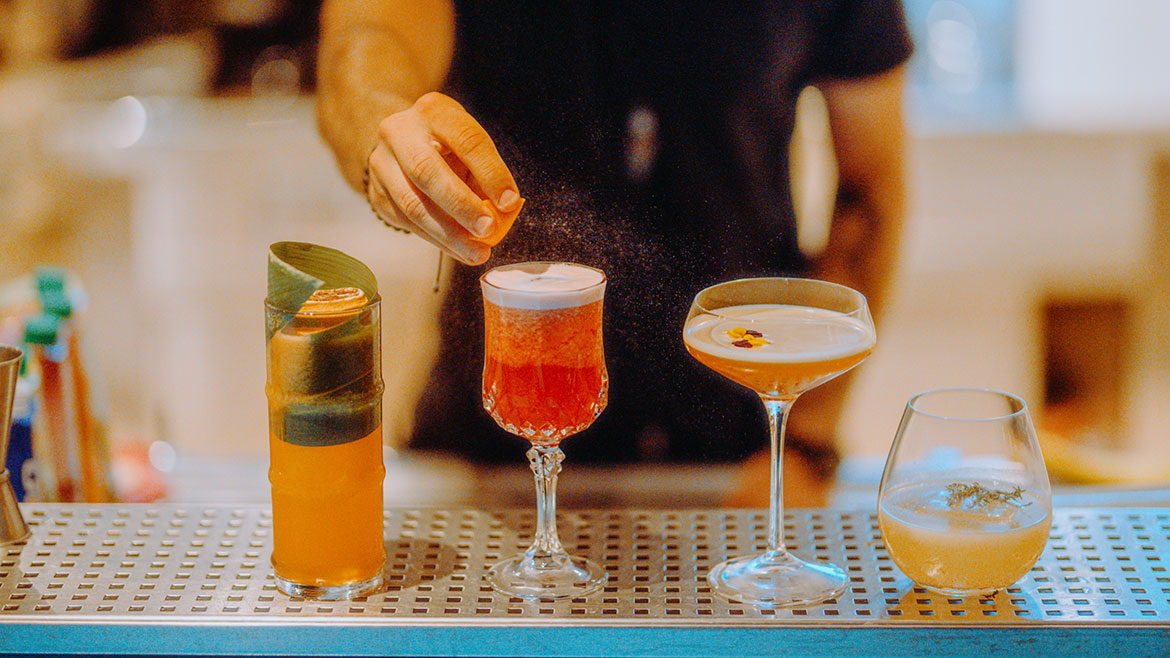
Cocktails at the Pathos Club & Restaurant
The well-being of staff is just as important to the owners as anything else – something that shows in the level of service.
As part of the ambition to keep the island’s economy humming year-round, rather than the famine or feast of the holiday season, the family firm is building a school of hospitality. It’s “important the island does not die in the winter and then only wakes up in the summer”.
Thanks to its location and layout, Calilo feels a world away from, well, the world. It’s easy to get lost in your own paradise, watching the sunset on the beach with a cocktail, or spending the afternoon lounging by the pool bar.
I spent my first day doing just that, tasting Greek delights, washed down with the occasional margarita. In the evening, I was tempted out to the season-closing party of the Pathos Club & Restaurant, the clifftop nightclub owned by the Calilo Group, which has “the best sunset on the island”. I could not disagree with that statement.
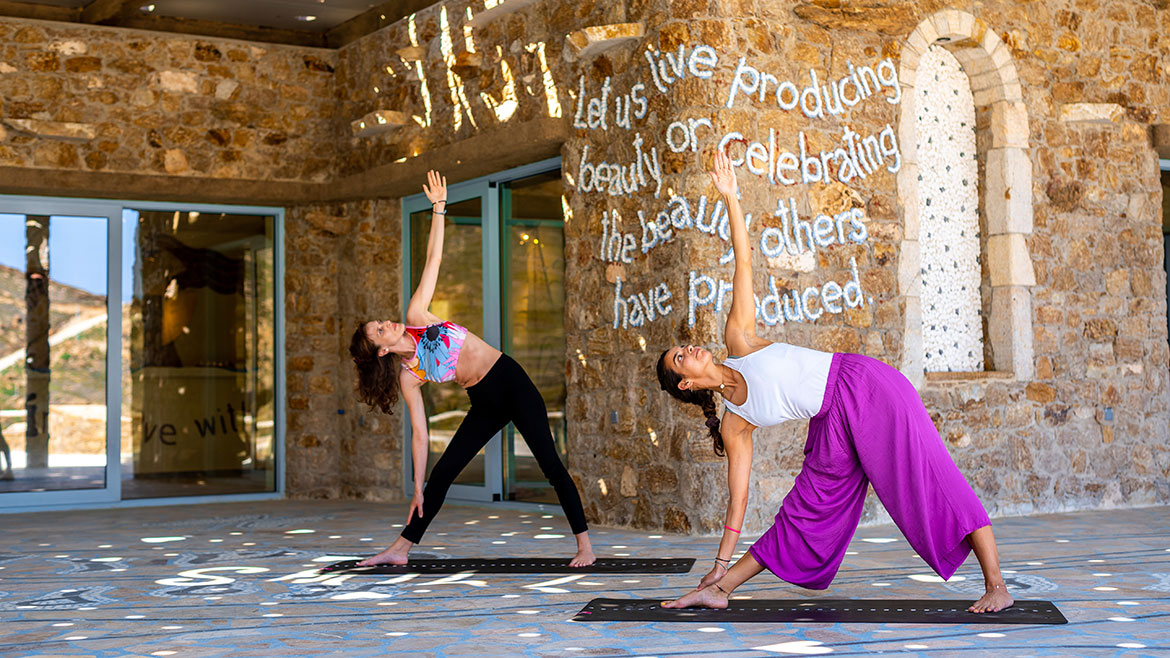
A spot of yoga at the spa
The next day was spent exploring the island of Ios, including visiting the tomb of Homer, the Greek poet credited as the author of the Iliad and Odyssey. On a clifftop surrounded by miles and miles of open sea and mountains, the tomb was an oasis of calm, and worth the hike to visit it in the midday heat.
After my trip around the island, I found myself in Calilo’s spa, a brand-new section of the hotel comprising a two-storey gym and spa overlooking the rest of the hotel and the bay beyond. Then it was back to the pool bar, to enjoy more Greek delights and a few drinks while watching the sunset in yet another spectacular display of light and colour.
My trip to Ios was a short one, but it has left a lasting impression on me as to what the words “holiday” and “sustainability” should really mean. Calilo shows why we can’t ignore one if we want to enjoy the other.
Rupert was a guest of Calilo. From £620, including breakfast, calilo.com
This article was first published in MoneyWeek's magazine. Enjoy exclusive early access to news, opinion and analysis from our team of financial experts with a MoneyWeek subscription.
Get the latest financial news, insights and expert analysis from our award-winning MoneyWeek team, to help you understand what really matters when it comes to your finances.

Rupert is the former deputy digital editor of MoneyWeek. He's an active investor and has always been fascinated by the world of business and investing. His style has been heavily influenced by US investors Warren Buffett and Philip Carret. He is always looking for high-quality growth opportunities trading at a reasonable price, preferring cash generative businesses with strong balance sheets over blue-sky growth stocks.
Rupert has written for many UK and international publications including the Motley Fool, Gurufocus and ValueWalk, aimed at a range of readers; from the first timers to experienced high-net-worth individuals. Rupert has also founded and managed several businesses, including the New York-based hedge fund newsletter, Hidden Value Stocks. He has written over 20 ebooks and appeared as an expert commentator on the BBC World Service.
-
 New PM Sanae Takaichi has a mandate and a plan to boost Japan's economy
New PM Sanae Takaichi has a mandate and a plan to boost Japan's economyOpinion Markets applauded new prime minister Sanae Takaichi’s victory – and Japan's economy and stockmarket have further to climb, says Merryn Somerset Webb
-
 Plan 2 student loans: a tax on aspiration?
Plan 2 student loans: a tax on aspiration?The Plan 2 student loan system is not only unfair, but introduces perverse incentives that act as a brake on growth and productivity. Change is overdue, says Simon Wilson
-
 8 of the best properties for sale with beautiful kitchens
8 of the best properties for sale with beautiful kitchensThe best properties for sale with beautiful kitchens – from a Modernist house moments from the River Thames in Chiswick, to a 19th-century Italian house in Florence
-
 Review: Eliamos Villas Hotel & Spa – revel in the quiet madness of Kefalonia
Review: Eliamos Villas Hotel & Spa – revel in the quiet madness of KefaloniaTravel Eliamos Villas Hotel & Spa on the Greek island of Kefalonia is a restful sanctuary for the mind, body and soul
-
 Adventures in Saudi Arabia
Adventures in Saudi ArabiaTravel The kingdom of Saudi Arabia in the Middle East is rich in undiscovered natural beauty. Get there before everybody else does, says Merryn Somerset Webb
-
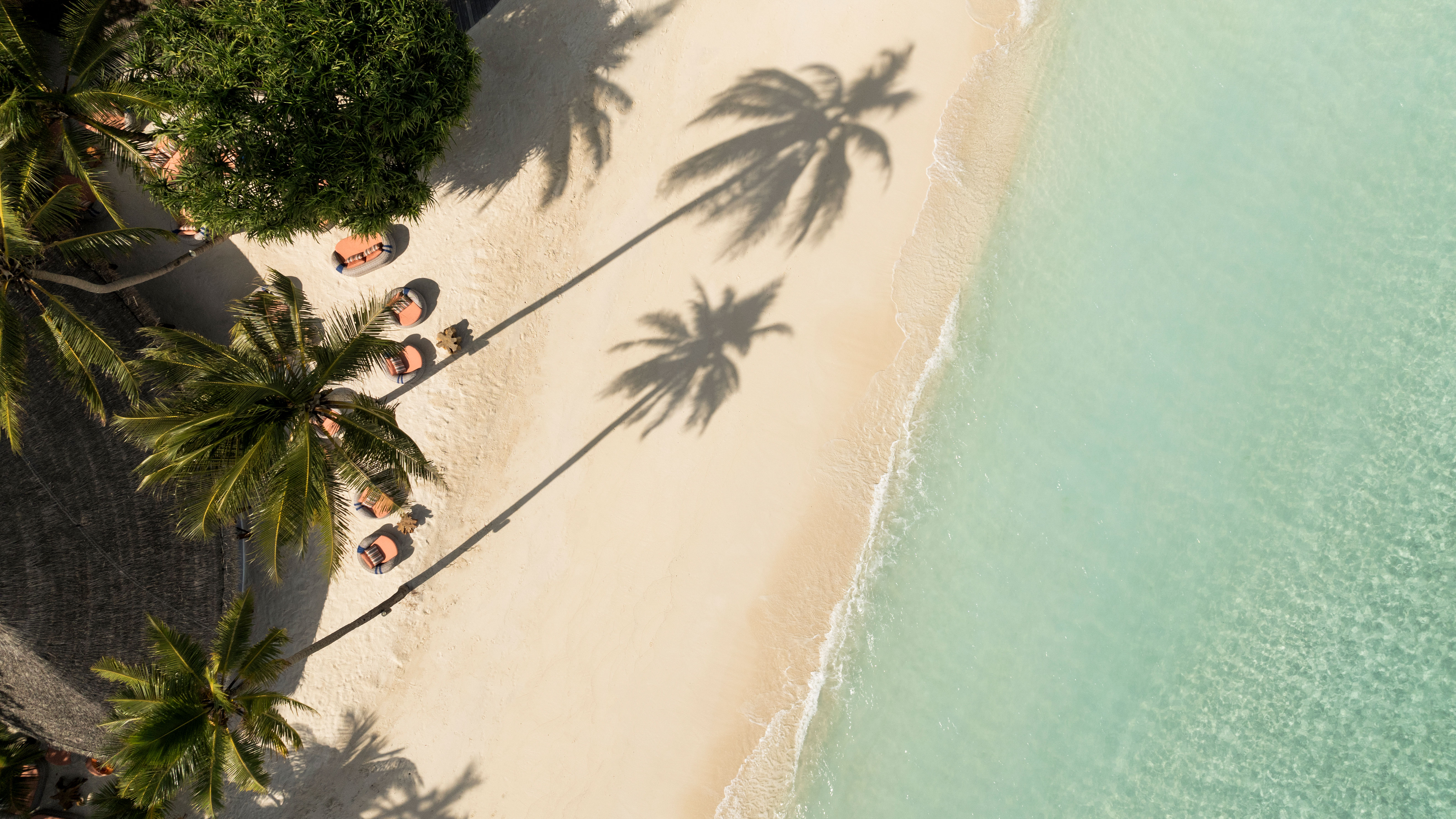 Review: Constance Moofushi and Halaveli – respite in the Maldives
Review: Constance Moofushi and Halaveli – respite in the MaldivesTravel The Constance resorts of Moofushi and Halaveli on two idyllic islands in the Maldives offer two wonderful ways to unwind
-
 Affordable Art Fair: The art fair for beginners
Affordable Art Fair: The art fair for beginnersChris Carter talks to the Affordable Art Fair’s Hugo Barclay about how to start collecting art, the dos and don’ts, and more
-
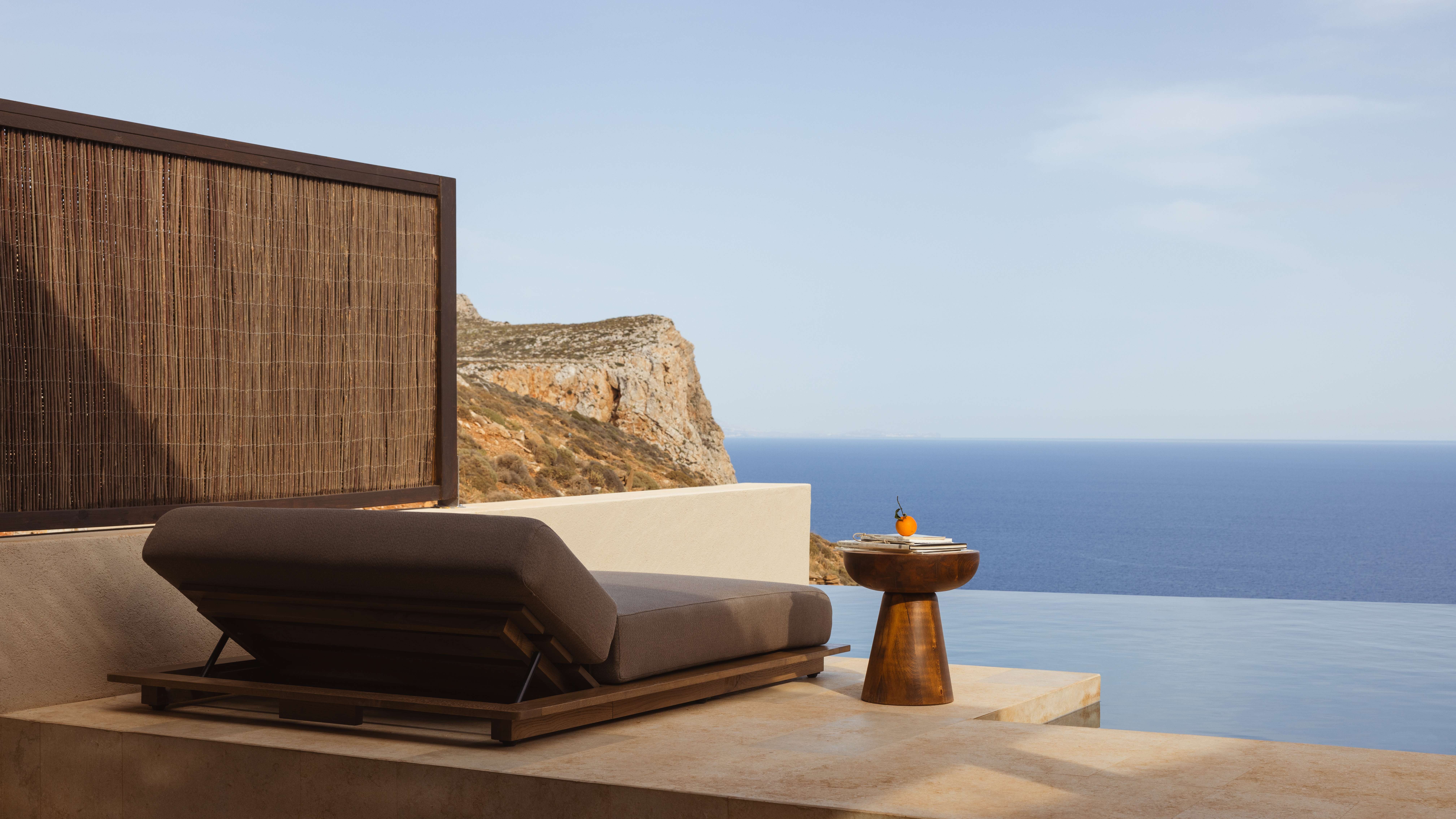 Review: Gundari, a luxury hotel in the Greek island of Folegandros
Review: Gundari, a luxury hotel in the Greek island of FolegandrosNicole García Mérida stayed at Gundari, a luxurious hotel on Folegandros, one of the lesser-known islands in the southern Cyclades in Greece
-
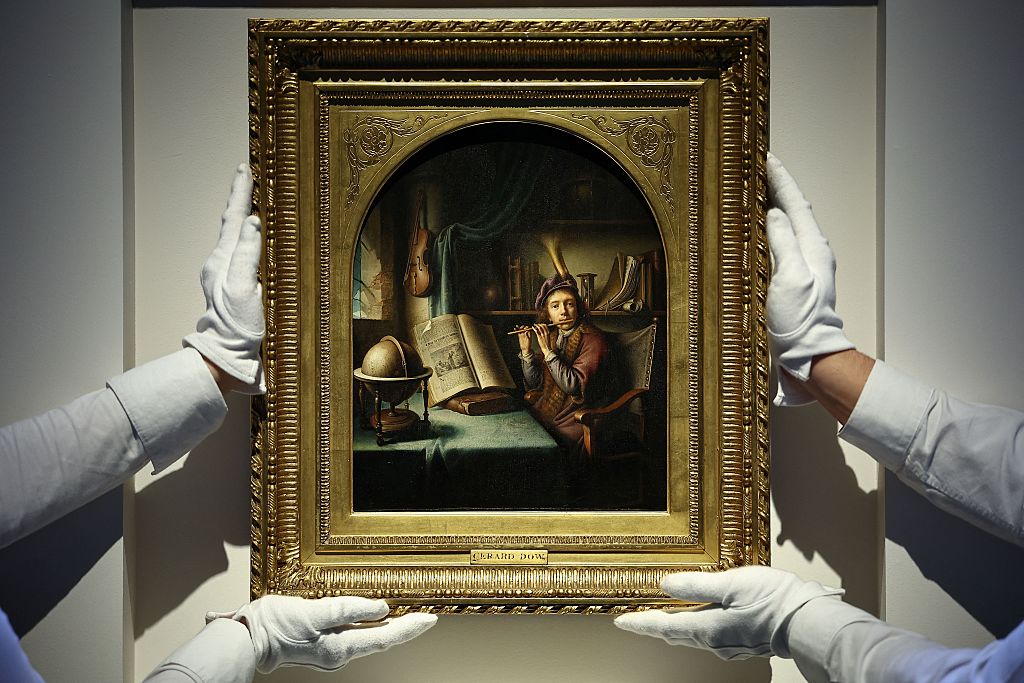 Fine-art market sees buyers return
Fine-art market sees buyers returnWealthy bidders returned to the fine-art market last summer, amid rising demand from younger buyers. What does this mean for 2026?
-
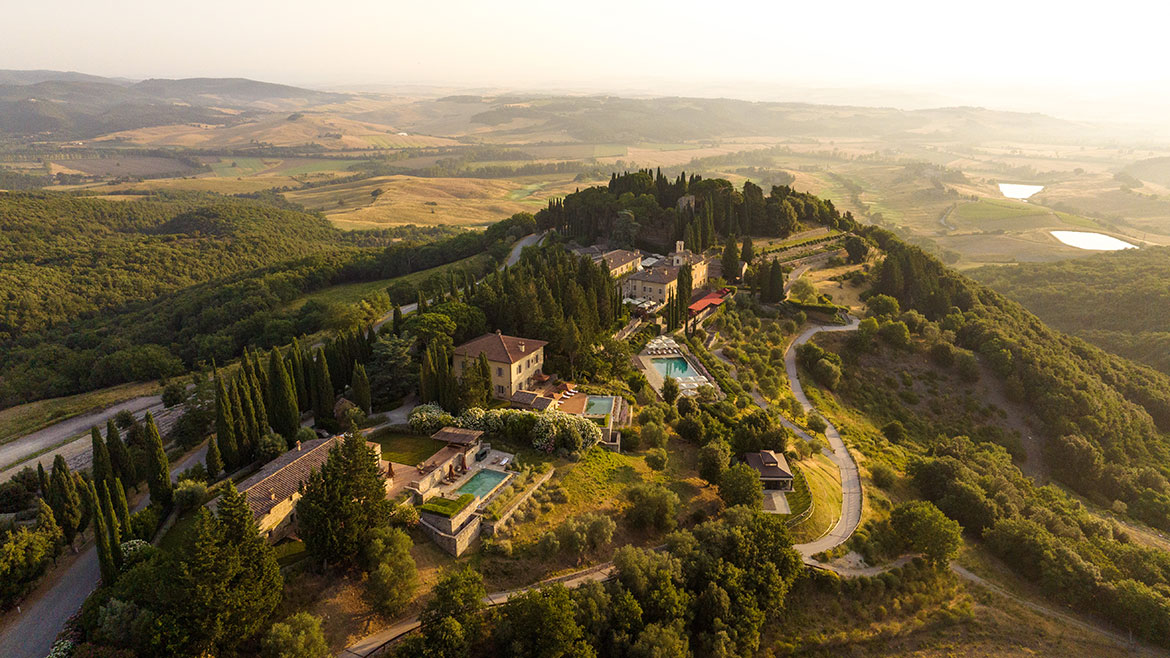 Review: Castiglion del Bosco, A Rosewood Hotel – a Tuscan rural idyll
Review: Castiglion del Bosco, A Rosewood Hotel – a Tuscan rural idyllTravel Play golf, drink exquisite wine and eat good food at Castiglion del Bosco, A Rosewood Hotel, all within the stunning Val d’Orcia National Park in Tuscany